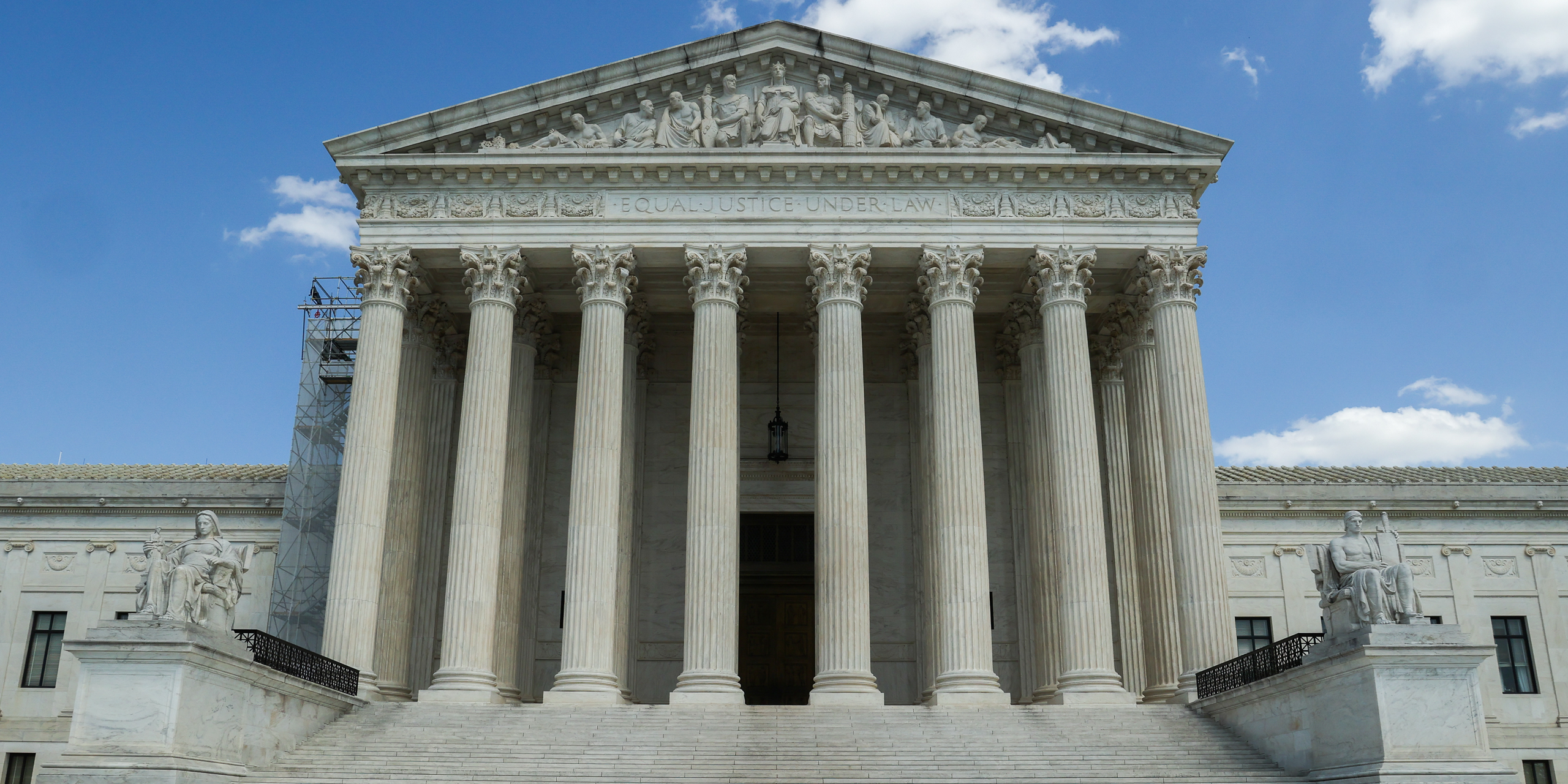
It’s Time for an Ethics Code for the Supreme Court
Photo by: Nick Wolf | Earthjustice Action
Blog by: Geoff Nolan | Earthjustice Action
It’s another day and another ethics scandal for the United States Supreme Court. Recently, ProPublica published a bombshell report detailing the ethical lapses of another justice sitting on the bench of our nation’s highest court. This time, Justice Samuel Alito failed to disclose a luxury vacation—complete with private jet travel and accommodations at an exclusive Alaska resort—all paid for by another billionaire conservative donor.
If it sounds like DeJa’Vu, you’re not wrong. Earlier this year, ProPublica published a series of reports detailing numerous questionable interactions between Justice Clarence Thomas and billionaire and Republican mega-donor Harlan Crow. For many years, Crow bought properties from Thomas, paid for the school tuition of Thomas’s grandnephew at a private boarding school, and invited Thomas on numerous luxurious vacations, often while traveling on his private jet and yacht.
If this behavior came from any other government official—from your local city council members to Members of Congress—we’d expect some consequences. In fact, numerous laws bar elected officials from receiving the types of lavish gifts bestowed upon Justices Thomas and Alito. But the rules governing the Supreme Court are different. While other federal judges abide by the Code of Conduct for United States judges, the Supreme Court is the only federal court without a binding ethical code. What’s more, the Supreme Court itself is responsible for holding its own justices accountable for any ethical lapses and administering the appropriate consequences.
The inability—or unwillingness—by the Supreme Court to hold itself to the highest ethical standards is contributing to its historically low trust ratings from broad swaths of the American public. It’s exacerbated a crisis of confidence in the court, where a rash of radical decisions overturning well-established precedent has created the public perception of a Supreme Court too involved in politics. This political radicalization, paired with the numerous and well-documented cases of ethical mishaps, is having a major impact on public opinion. Following media reports on Justice Clarence Thomas’ behavior and almost one year after the highly unpopular Dobbs decision that overturned a 51-year precedent, took away a constitutional right from millions of women, and restricted abortion access nationwide, a new poll conducted by Marquette Law School found that 59 percent of U.S. adults disapprove of the current Supreme Court.
Our courts are most effective when they function as fair and independent arbiters of justice both in theory and in practice. For all the inequalities present in American society, our courts should be above the fray. Every citizen, no matter their background or class, should be able to walk through the courthouse doors and receive equal treatment under the law. When Supreme Court justices accept luxury vacations and other gifts from billionaires with business before the court, it shatters the legitimacy and perception of the court’s independence from special interests. Even the perception that this court is prioritizing the interests of the wealthy and well-connected over the public interest is enough to create deep public mistrust in one of our country’s most important institutions.
We need transparency and accountability from the justices on the highest court in the land, and that starts with ethics reform. Central to this is an enforceable Code of Conduct similar to the ethics governing other federal judges. It includes following clear and transparent rules on recusals, guidelines on political participation, and a mechanism to enforce compliance with the strongest ethical standards. Additionally, Congress must play an active role in providing rigorous oversight of the conduct of ethical violations by Supreme Court justices, especially if the court refuses to hold its justices to high ethical standards.
Courts are the backbone of our democracy, and it’s critical that the judges and justices who comprise them adhere to the most robust ethical standards and reject any behaviors that give rise to impropriety or bias. Failure to do so will only exacerbate the crisis of confidence this court faces in the public eye. The stakes are far too high for us to ignore it any longer.
Join us and stay tuned for ways you can get involved in real-time fights to protect our health, communities, and the environment.
- Sign up for our email updates (at the top of this page)
- Follow us on Facebook, Twitter, and Instagram
- Make sure you are registered to vote
- Get ready to call your representatives in Washington, DC (202) 224-3121
- Donate to Earthjustice Action today (Gifts to Earthjustice Action are not tax-deductible)